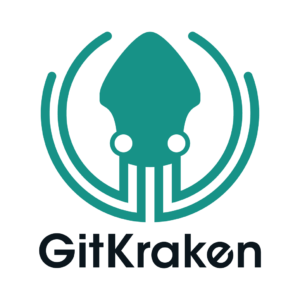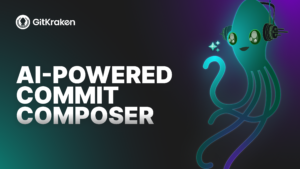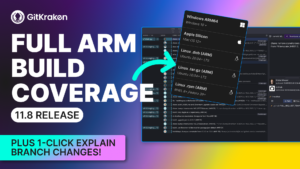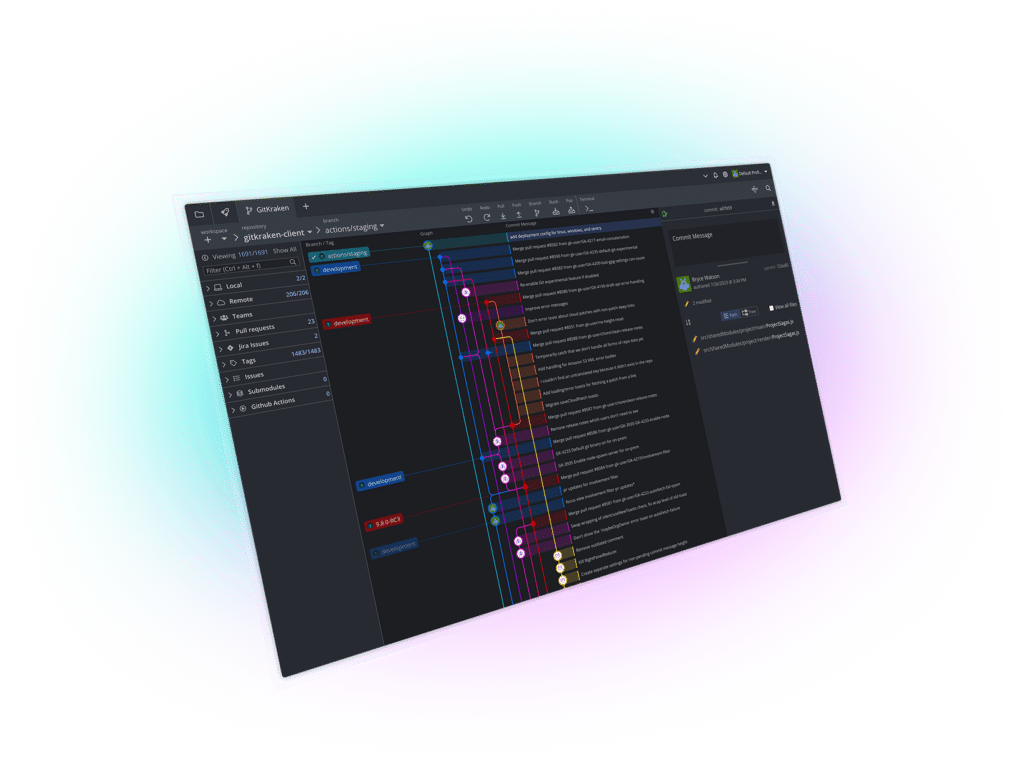In the rapidly evolving world of healthcare technology, the Health Insurance Portability and Accountability Act (HIPAA) stands as a beacon of data privacy and security. For software developers operating in this domain, understanding and adhering to HIPAA isn’t just a regulatory mandate—it’s a commitment to patient trust and safety.
With the increasing reliance on version control systems in software development, choosing the right Git client becomes paramount. GitKraken Client On-Premise emerges as a frontrunner, offering a blend of robust features tailored to meet the stringent requirements of HIPAA.
This guide is designed to illuminate the path for developers, shedding light on how GitKraken Client On-Premise ensures HIPAA compliance and why it’s the go-to choice for healthcare software professionals. This guide is for you if you want to explore GitKraken’s innovative features and HIPAA’s rigorous standards, and discover how to elevate your development practices in the healthcare sector.
Understanding HIPAA in the Context of Software Development
The Health Insurance Portability and Accountability Act (HIPAA) is a cornerstone in the intricate landscape of healthcare software development. Established in 1996, HIPAA was designed to protect the privacy and security of patients’ medical records and other health information. For software developers, this translates into rigorous standards and regulations dictating how health information is stored, transmitted, and accessed.
HIPAA’s significance in healthcare software development cannot be overstated. With the digital transformation of the healthcare industry, vast amounts of sensitive patient data are now stored and managed electronically. This digital shift has brought about numerous advantages, from streamlined operations to enhanced patient care. However, it also presents potential vulnerabilities. Data breaches, unauthorized access, or even inadvertent data leaks can have severe consequences, both in terms of patient trust and potential legal ramifications.
For software developers, ensuring HIPAA compliance means more than just ticking off a regulatory box. It’s about building software that upholds the highest standards of data protection, ensuring that patient information remains confidential and secure at all times. Every line of code, every database query, and every software update must be approached with HIPAA’s principles in mind.
GitKraken Client On-Premise: A Bridge to HIPAA Compliance
Enter GitKraken Client On-Premise – a best in class modern Git client for the software development community. But what makes it particularly relevant to our discussion on HIPAA? GitKraken Client On-Premise offers a suite of features tailored to enhance security, streamline workflows, and ensure data integrity. For developers in the healthcare sector, this means a tool that not only simplifies Git operations but also aligns with the stringent requirements of HIPAA.
With its intuitive user interface, encryption capabilities, and robust audit trails, GitKraken Client On-Premise becomes an invaluable ally for developers navigating the complexities of HIPAA compliance. It’s not just about managing code; it’s about ensuring that the codebase – and the sensitive data it interacts with– remains protected at all times.
GitKraken Client On-Premise is available as two options.
Self-Hosted Server version: This is the recommended installed version of GitKraken Client On-Premise, as it allows users to login without leaving your internal network. Self-Hosted Server includes a license server with LDAP support for user management. This version enables organizations to deploy software to their users and control the version upgrade schedule.
Serverless version: Alternatively, we also offer a serverless version for those organizations who can’t – or don’t want to – stand up their own license server. While no license server is required, this option does require manual license tracking and management by the organization, as well as yearly discussions with GitKraken about usage.
Best Practices for Using GitKraken Client in a HIPAA-Compliant Manner
Navigating the intricate requirements of HIPAA can be daunting for any software developer in the healthcare sector. However, this journey can be made significantly smoother with the right tools and practices in place. GitKraken Client On-Premise, with its array of features tailored for enhanced security and efficiency, emerges as a trusted companion. Here are some best practices to ensure you’re leveraging GitKraken Client to its fullest potential while maintaining HIPAA compliance:
1. Secure Your Repositories
Encryption: Ensure that your network traffic between local and remote repositories are encrypted. GitKraken Client supports SSH and HTTPS protocols, making it harder for unauthorized individuals to access traffic sent between local and remote repositories.
Access Control: GitKraken Client enforces access controls set by your remote hosting service. Limit remote repository and pull request access to only those who need it.
2. Maintain Comprehensive Audit Trails
Commit History: GitKraken Client’s visual commit history lets you easily track changes, plus identify who made them and when. This is crucial for HIPAA, which requires a detailed log of data access and modifications.
Branching and Pull Request Integration: Use GitKraken Client’s branching features and pull request integration to ensure that changes are reviewed and approved before they’re integrated. This adds an additional layer of oversight and accountability.
3. Regular Backups
Ensure that you’re regularly backing up your repositories. While Git inherently provides version control, backups are essential for disaster recovery. GitKraken Client’s interface makes it easy to clone and backup repositories to secure locations.
4. Stay Updated
GitKraken frequently releases product updates that may include security enhancements. With our GitKraken Client On-Premise solutions, your IT team has complete control over the version update schedule and is empowered to deploy updates with minimal IT resources and disruption.
5. Training and Awareness
While tools like GitKraken Client provide robust features, human error remains a potential vulnerability. Regularly train your team on HIPAA requirements and how to use GitKraken Client in a manner that aligns with these standards. Utilize GitKraken’s documentation and community forums to stay informed about best practices and updates.
6. Integrate with Other HIPAA-Compliant Tools
If you’re using other tools in your development pipeline, such as CI/CD platforms or testing suites, ensure they’re also HIPAA-compliant. GitKraken Client’s integrations can help streamline workflows while maintaining a focus on security.
Common Pitfalls and How to Avoid Them
While GitKraken Client On-Premise offers a plethora of features designed to streamline Git operations and enhance security, it’s not immune to some common pitfalls that can jeopardize HIPAA compliance. Awareness of these potential missteps, coupled with proactive measures, can ensure that your healthcare software development remains on the right track. Here are some common pitfalls and strategies to sidestep them:
1. Overlooking Access Controls
Pitfall: Granting broad access permissions to the license server without regular reviews, leading to unauthorized individuals gaining access to sensitive data.
Solution: Regularly audit user permissions within GitKraken Client. Ensure that access is granted on a need-to-know basis and revoke permissions for individuals who no longer require access.
2. Neglecting Encryption
Pitfall: Assuming that all repositories are automatically encrypted, leading to potential data breaches.
Solution: Remember that GitKraken Client only helps encrypt traffic between local and remote repositories. Actively enable and verify SSH or HTTPS encryption for traffic between local and remote repositories in GitKraken Client. Regularly update SSH keys to align with industry best practices.
3. Ignoring Updates
Pitfall: Using outdated versions of GitKraken Client, which might have known vulnerabilities or lack the latest security enhancements.
Solution: Regularly check for and install updates to GitKraken Client. Stay informed about patch notes and security advisories.
4. Incomplete Audit Trails
Pitfall: Not maintaining comprehensive logs of changes, making it challenging to trace unauthorized modifications or data breaches.
Solution: Utilize GitKraken Client’s visual commit history and tagging features to maintain detailed logs.
5. Neglecting Alternative Authentication Methods
Pitfall: Relying solely on passwords for access, increasing the risk of unauthorized access due to password breaches.
Solution: Enable LDAP for your GitKraken Client Self-Hosted Server version or SSO for our Cloud solutions.
6. Over-Reliance on Tools
Pitfall: Assuming that using a tool like GitKraken Client On-Premise automatically ensures HIPAA compliance, neglecting the human aspect of data security.
Solution: Regularly train your team on HIPAA standards and the importance of data security. Encourage a culture of vigilance and continuous learning.
FAQs on GitKraken Client On-Premise and HIPAA Compliance
Navigating the intersection of GitKraken Client On-Premise and HIPAA compliance can raise a myriad of questions. To assist developers in this journey, we’ve compiled some of the most frequently asked questions and provided concise, informative answers.
1. Is GitKraken Client On-Premise inherently HIPAA-compliant?
Answer: No tool is inherently HIPAA-compliant. While GitKraken Client On-Premise offers features that support HIPAA compliance, such as encryption and detailed audit trails, compliance is ultimately determined by how the tool is used in conjunction with organizational practices and policies.
2. How does GitKraken Client On-Premise ensure data encryption?
Answer: GitKraken Client On-Premise encrypts traffic between local and remote repositories over SSH or HTTPS protocols, ensuring that data is protected during transmission. While HTTPS is enabled by default, developers need to actively enable SSH and verify these encryption settings.
3. Can I integrate GitKraken Client On-Premise with other HIPAA-compliant tools?
Answer: Yes, GitKraken Client offers integrations with various platforms. However, it’s essential to ensure that each tool in your development pipeline is used in a HIPAA-compliant manner.
4. How often should I review GitKraken Client user permissions?
Answer: Regularly. It’s a best practice to audit user permissions periodically, especially after team changes, to ensure that only authorized individuals have access to sensitive data.
6. What should I do if I suspect a data breach or unauthorized access to GitKraken Client?
Answer: Immediately revoke access to the suspected account, conduct a thorough audit to determine the extent of the breach, and follow organizational protocols for reporting and addressing data breaches. Utilize GitKraken’s logs to aid in the investigation.
7. Are there any community resources or forums for GitKraken Client users focused on HIPAA compliance?
Answer: Yes, GitKraken has an active community where users share insights, best practices, and solutions. While not exclusively focused on HIPAA, many healthcare software developers participate and can offer valuable insights.
Conclusion
In the complex and mission critical world of healthcare software development, the dual challenges of innovation and compliance often intersect. The Health Insurance Portability and Accountability Act (HIPAA) sets forth rigorous standards, ensuring that patient data remains sacrosanct. For developers, this means not only understanding these regulations but also choosing tools that align with them.
With its robust features and emphasis on security, GitKraken Client On-Premise emerges as a valuable ally in this endeavor. However, tools are only as effective as their usage. By being vigilant, staying informed, and actively implementing best practices, developers can harness the full potential of GitKraken Client while upholding the trust and safety that patients and healthcare providers place in them. As the digital healthcare landscape continues to evolve, the fusion of the right tools and practices will guide developers toward excellence and compliance.
 GitKraken MCP
GitKraken MCP GitKraken Insights
GitKraken Insights Dev Team Automations
Dev Team Automations AI & Security Controls
AI & Security Controls







